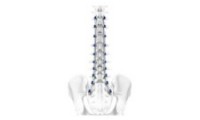-
Intuitive stock drops on mixed Q3 financial results
- Source: drugdu
- 137
- October 31, 2023
-
Supply disruptions are delaying surgeries and compromising patient care, survey finds
- Source: https://www.medtechdive.com/news/supply-disruptions-delaying-surgeries-ecri/697140/
- 213
- October 31, 2023
-
Who is Tim Schmid, Johnson & Johnson MedTech’s new leader?
- Source: drugdu
- 144
- October 27, 2023
-
Surgery to straighten a crooked septum more effective than nasal sprays, trial suggests
- Source: drugdu
- 143
- October 20, 2023
-
Merck’s Keytruda wins coveted FDA nod around surgery for early lung cancer—with a surprise
- Source: drugdu
- 172
- October 19, 2023
-
Bristol Myers Squibb’s Opdivo approved by FDA for expanded melanoma use
- Source: drugdu
- 117
- October 18, 2023
-
Opioid use disorder treatment lowers risk of overdose after surgery, study finds
- Source: drugdu
- 137
- October 17, 2023
-
Merck’s Keytruda hits overall survival goal in early lung cancer as FDA decision nears
- Source: drugdu
- 121
- October 12, 2023
-
New University of Bristol study to aid strep A vaccine development
- Source: drugdu
- 127
- October 12, 2023
-
J&J’s DePuy Synthes wins FDA clearance for TriAltis tech
- Source: drugdu
- 109
- October 12, 2023
your submission has already been received.
OK
Subscribe
Please enter a valid Email address!
Submit
The most relevant industry news & insight will be sent to you every two weeks.













